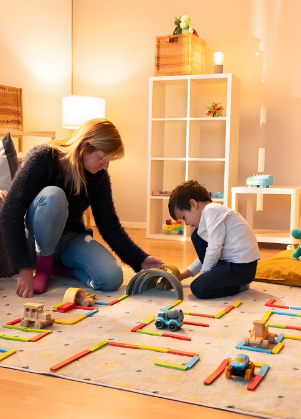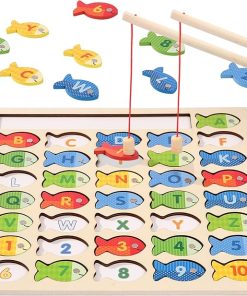Montessori Education – A Bridge for Children to Integrate into the Collective and Society
What is Montessori Education?
Montessori education is an educational approach named after Maria Montessori, an Italian female educator. At its core, it places children at the center, respecting their innate nature during growth and creating a learning-centered environment that empowers young learners. By fostering a balance of freedom and discipline, Montessori education aims to fully unlock children’s potential and promote holistic development of their abilities.

Key Components of Montessori Education
1. Practical Life Education
- Focus Areas: Basic motor skills training, self-care, environmental care, and caring for others.
- Activities: Daily routines like pouring, buttoning, sweeping, and polite interactions.
- Objectives: Cultivate independence, autonomy, concentration, hand-eye coordination, and self-confidence in children.
2. Sensorial Education
- Focus Areas: Visual, auditory, taste, smell, and tactile training.
- Activities: Sorting objects by color/shape, matching sounds, identifying textures, etc.
- Objectives: Develop observational skills, classification abilities, and sustained attention.
3. Mathematics Education
- Focus Areas: Pre-numerical concepts, recognition of numbers 0-10, addition/subtraction systems, continuous numbers, introduction to fractions, and squares/cubes.
- Activities: Using concrete materials like beads and blocks to explore abstract mathematical ideas.
- Objectives: Build foundational number sense, logical thinking, comprehension, and problem-solving skills.
4. Language Education
- Focus Areas: Listening, speaking, visual perception, and reading/writing practice.
- Activities: Phonics games, storytelling, tracing sandpaper letters, and early reading exercises.
- Objectives: Enhance literacy, oral expression, and communication skills.
5. Cultural and Scientific Education
- Focus Areas: Nature, geography, history, science, music, and art.
- Activities: Exploring plants/animals, studying maps, celebrating cultural festivals, and conducting simple experiments.
- Objectives: Spark curiosity, foster a love for science, strengthen environmental awareness, and cultivate cultural pride.
Who Benefits from Montessori Education?
Montessori education is ideal for children aged 0–6 years, including but not limited to:
- Children with poor self-care skills
- Those struggling with social interactions
- Hyperactive or easily distracted learners
- Children with developmental delays
- Those with a strong sense of order
- Highly expressive or introverted children
- Highly sensitive individuals
By tailoring activities to each child’s unique pace and interests, Montessori education nurtures lifelong learners who are confident, curious, and capable of independent thinking.
This structured approach ensures children thrive academically, socially, and emotionally while preparing them for future success. 🌱✨

 Wooden Magnetic Fishing Montessori Fine Motor Skills Toy with Letters and Numbers
Wooden Magnetic Fishing Montessori Fine Motor Skills Toy with Letters and Numbers
Kids Water Bottle Stickers Pack Cute Decorations for School Prizes & Gifts
Kick Scooter for Kids Ages 3-10 3-Wheel Scooter with Adjustable Height LED Light Wheels
Scientoy Fidget Toy Set, Sensory Toy for ADD, Autistic Children, Anxiety Autism to Stress Relief
50 Pcs Mini Pull Back Cars Set Pull Back Racing Vehicles for Kids Toddlers